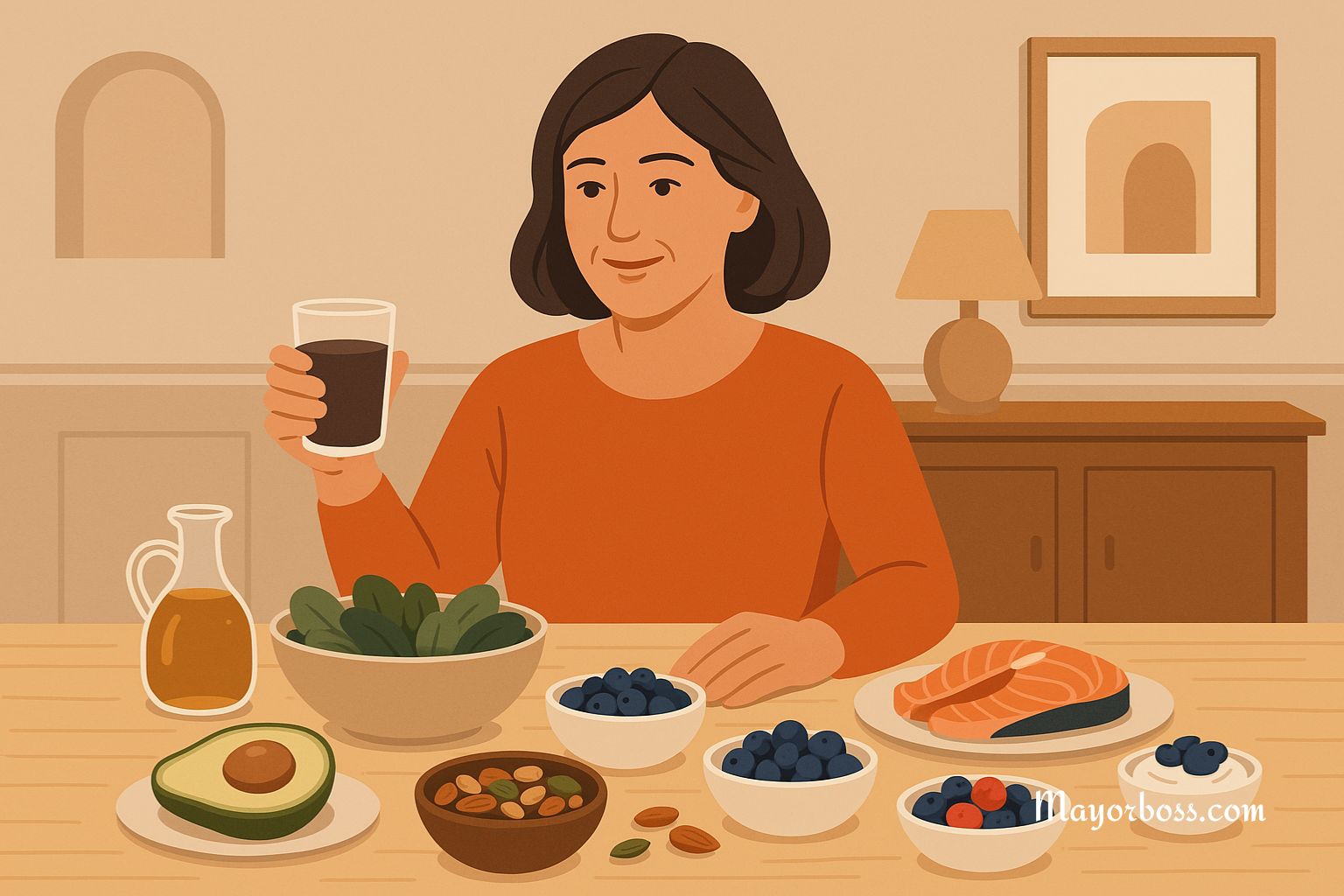Foods That May Help Lower Your Blood Sugar Naturally
Managing blood sugar is vital, especially for people with diabetes or prediabetes. But even if you don’t have either, keeping blood sugar steady can improve your energy, mood, and long-term health.1
Food is a powerful tool. Some foods may help your body use insulin better or slow down how quickly sugar enters your bloodstream. Let’s explore some of the top foods that may naturally help lower your blood sugar.

1. Leafy Green Vegetables
Leafy greens like spinach, kale, and Swiss chard are packed with vitamins and minerals. They are also low in carbohydrates and calories. That means they don’t cause a rapid rise in blood sugar after you eat them.
They’re rich in magnesium, which may help improve insulin sensitivity. That’s important because better insulin sensitivity means your body can manage blood sugar more effectively.
2. Whole Grains
Unlike refined grains (like white bread and white rice), whole grains contain fiber, especially soluble fiber. Fiber slows down digestion and the release of sugar into your bloodstream.2
Good options include:
- Oats
- Quinoa
- Barley
- Brown rice
- Whole wheat
Eating more whole grains instead of refined grains may help keep your blood sugar from spiking after meals.
3. Beans and Lentils
Beans and lentils are full of complex carbohydrates and fiber. They digest slowly, which helps prevent a rapid rise in blood sugar. They’re also a great source of protein, which adds to their blood sugar–friendly benefits.
Try adding black beans, chickpeas, or lentils to your soups, salads, or main dishes.
4. Berries
Berries such as blueberries, strawberries, and raspberries have a natural sweetness but are relatively low in sugar compared to many other fruits. They’re also full of antioxidants and fiber.
Research suggests that berries may improve insulin resistance and reduce blood sugar spikes after meals.3
5. Nuts and Seeds
Nuts and seeds are rich in healthy fats, protein, and fiber. These nutrients help slow down digestion, which can reduce the speed at which sugar enters your blood.4
Good choices include:
- Almonds
- Walnuts
- Chia seeds
- Flaxseeds
- Pumpkin seeds
A small handful of nuts as a snack can help you feel full while supporting stable blood sugar.
6. Cinnamon
Cinnamon is more than a warming spice—it may help improve insulin sensitivity and lower fasting blood sugar levels. Some studies show that cinnamon can also reduce blood sugar spikes after meals.5
Just a sprinkle on your oatmeal or yogurt may offer benefits over time. However, it’s best not to take large amounts without medical advice.
7. Fatty Fish
Salmon, sardines, mackerel, and other fatty fish are rich in omega-3 fatty acids. In particular, these healthy fats help decrease inflammation, which is often higher in people with insulin resistance.
Fatty fish doesn’t directly lower blood sugar, but it supports overall metabolic health and heart health—two important concerns for people with diabetes or blood sugar problems.
8. Apple Cider Vinegar
Some research suggests that apple cider vinegar may reduce blood sugar spikes after meals. It seems to slow digestion and improve how the body handles carbohydrates.
To try it safely, dilute one to two teaspoons of apple cider vinegar in a glass of water before meals. Never drink it straight, as it can damage your teeth and throat.
9. Avocados
Avocados are high in fiber and heart-healthy fats. They don’t raise blood sugar and may even help improve insulin sensitivity. Adding avocado to your meals can help keep you full longer and support blood sugar balance.
Try it on whole grain toast or mixed into a salad.
10. Greek Yogurt
Greek yogurt is lower in sugar and higher in protein compared to regular yogurt. It contains probiotics, which may also support better blood sugar control by improving gut health.
Choose plain, unsweetened Greek yogurt and add berries or a dash of cinnamon for flavor.
Final Thoughts
No single food can fix blood sugar problems. But adding these foods to your meals and snacks—while limiting refined sugars and processed carbs—can make a positive impact over time.
Also, remember to pair good nutrition with other healthy habits:
- Regular physical activity
- Drinking enough water
- Managing stress
- Getting enough sleep
If you have diabetes or are at risk, speak with a healthcare provider or dietitian. They can help you create a good plan to support healthy blood sugar levels.
Healthy eating doesn’t need to be complicated. Sometimes, the right foods on your plate can work like gentle medicine—helping your body do what it’s meant to do.
- https://www.niddk.nih.gov/health-information/diabetes/overview/managing-diabetes ↩︎
- https://www.cdc.gov/diabetes/healthy-eating/fiber-helps-diabetes.html ↩︎
- https://pmc.ncbi.nlm.nih.gov/articles/PMC7202899/ ↩︎
- https://pmc.ncbi.nlm.nih.gov/articles/PMC6267433/ ↩︎
- https://pmc.ncbi.nlm.nih.gov/articles/PMC2901047/ ↩︎
